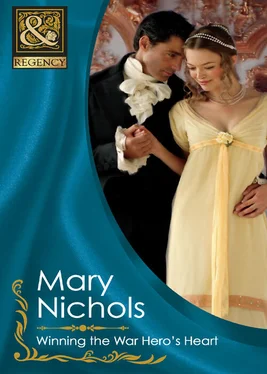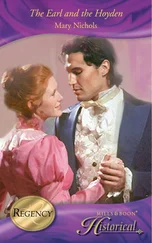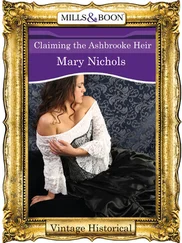‘I know. I notice the parson prays for good weather in every service and the amens after that are louder than usual.’
‘Let us hope his prayers are answered. If the men cannot cultivate the land they are given, it will not help them, will it?’
‘No. I have been thinking about that. At Ravens Park we have a great glasshouse in which all manner of things grow regardless of the weather. The men could build some of those. I am sure my friend will provide them with wood and glass and there are bound to be carpenters and glaziers among them. They could grow more exotic things, which fetch more on the London markets.’
‘The generosity of this friend of yours seems unending,’ she said with a smile. She had already guessed the identity of the benefactor. It put her in a quandary. How could she maintain her antipathy towards him when everything he did was to his credit? She could only do it by reminding herself over and over again that he was his father’s son, that when he inherited he would undoubtedly revert to type. How could he not do so with that great mansion and a vast estate to maintain, not to mention the society with which he would have to associate? She hoped that would not happen before the good he was trying to do came to fruition.
‘If it keeps the men busy and stops them attending seditious meetings, that is all to the good, do you not agree?’ he said.
‘Oh, most certainly.’ The clouds were darkening the sky again as they approached the town. ‘If it rains again before you arrive home, you will be soaked,’ she commented. ‘Why not leave me? We are almost in the town. I shall be perfectly safe.’
‘I will see you to your door, as I promised, and I always have a serviceable cloak rolled up on my saddle. I met weather worse than this in the Peninsula when we were on the march and am none the worse for it.’
‘It must have been a hard time.’
‘No worse for me than hundreds of other poor beggars. As an officer, I could ride when they had to march and officers had billets when the men had to sleep where they dropped, whatever the weather, sometimes so hot it was like an oven, at other times freezing with hale and snow and biting wind.’
‘I wager you did not always take the billets, but slept with your men.’
He laughed. ‘How do you know that?’
‘Because I am coming to know the man,’ she said simply.
He turned towards her in surprise, but decided not to comment. If she was beginning to look more favourably on him, that was all to the good. If they could work together and not on opposing sides, who knew what they could achieve? But he decided not to say that either.
They stopped outside her door. ‘Thank you for your escort, my lord,’ she said, wondering if she ought to invite him in for refreshment, but decided that would be going too far. She could almost see the curtains twitching in the house across the road. Instead, she held out her right hand.
He took it in his firm grip. ‘Good afternoon, Miss Wayland. Take care now and if you need me, I am yours to command.’ And with that he lifted the back of her hand to his lips.
Even through her thin glove, she could feel the warmth of his gentle kiss coursing through her and ending up in her cheeks. She was sure they were flaming. Was he simply being polite and behaving as a gentleman would to a lady? But she was not a lady and the situation in which they found themselves was not an occasion for the formal niceties of society. Oh, how she hoped the curtain twitchers had turned away at that moment.
She retrieved her hand, bade him a hurried farewell and fled indoors, leaving him staring at the closed door.
He shrugged, fetched out his cape and put it on before mounting and cantering away in the rain. Had they or had they not established a rapport? He could not be sure. Nor was he sure why it mattered to him, except that, in spite of his father, she did have some influence through her newspaper and it was as well not to call down her wicked wit on his own shoulders, or he would never succeed in winning the men round.
On Monday he would take the carriage and visit James. He hoped his friend would act for him in the matter of the market gardens. And, if he could not persuade his father to change his mind, James might be agreeable to advising Miss Wayland over the accusation of defamation. It was strange how important it was to him that she should not be convicted, but he told himself severely it was only his sense of justice.
They were both in church the following morning; Miles with his parents in their pew at the front, Helen in the body of the church with Betty beside her. Neither acknowledged the other. The lengthy sermon was all about knowing one’s place and not aspiring to rise above it. A woman’s role was to look after the home, to do good works and not set herself up as equal to a man. Helen smiled, realising it was aimed directly at her. She wondered if the Viscount, whose tall back was three rows in front of her, was smiling, too. The Earl was nodding vigorously as if he agreed with every word, having no doubt instructed the rector in his duty to point out the errors of his flock—and one in particular.
Helen did not linger about the churchyard afterwards, not only because it was another miserable day and everyone was hurrying home, but because Sunday was the day she did her accounts, prepared bills and planned the week ahead. Edgar Harrington was still learning and needed help with laying out the advertisements and copying some of the more important pieces from the London papers and she would spend some time with him the next day.
The accounts done, she fell to musing on the Viscount’s idea for the market co-operative venture. Could it work? Would the men work together, or would there be lazy ones who would not pull their weight and others who worked harder than the others, but received no greater return? Viscount Cavenham undoubtedly meant well, but had he considered that? It would take a great spirit of willingness on everyone’s part to bring it to fruition. And how would men like Blakestone react? It did not suit his purpose to have contented workers. She wished now that she had never printed his poster.
It reminded her it was still in the window of the shop. She went downstairs and removed it. Standing with it in her hand, she looked about her. The room was a large one and contained Edgar’s desk and a large table at which she sometimes worked and where customers brought their advertisements and announcements to be printed in the paper. There were a few bookshelves, which housed some of her father’s books. She noticed a well-thumbed one about the laws of slander and libel— she ought to study that—an English grammar, a copy of Johnson’s dictionary, a book of maps, a timetable for the coaches leaving the Three Cups for London and Norwich each day and a bible. They hardly filled the shelves. And yet upstairs in what had been his study there were stacks of books on any number of subjects. And in her own room there were books she had bought or been given as presents throughout her childhood and growing up, some instructive, some purely romantic stories. Everyone should have access to books, she mused, and ran upstairs.
She was up and down the stairs all afternoon, bringing down books and arranging them on the shelves in the shop. Here was a veritable library and she would make it available to the townspeople. It might be that some of the men who were out of work could learn a new skill from one of them. And even if they did not, they might lose themselves in the printed word, adding to their education. She sat down and sketched out a notice to put in the window. The books would be loaned free so long as they were returned within two weeks in good condition. She stopped when Betty came to tell her that supper was on the table.
Читать дальше












